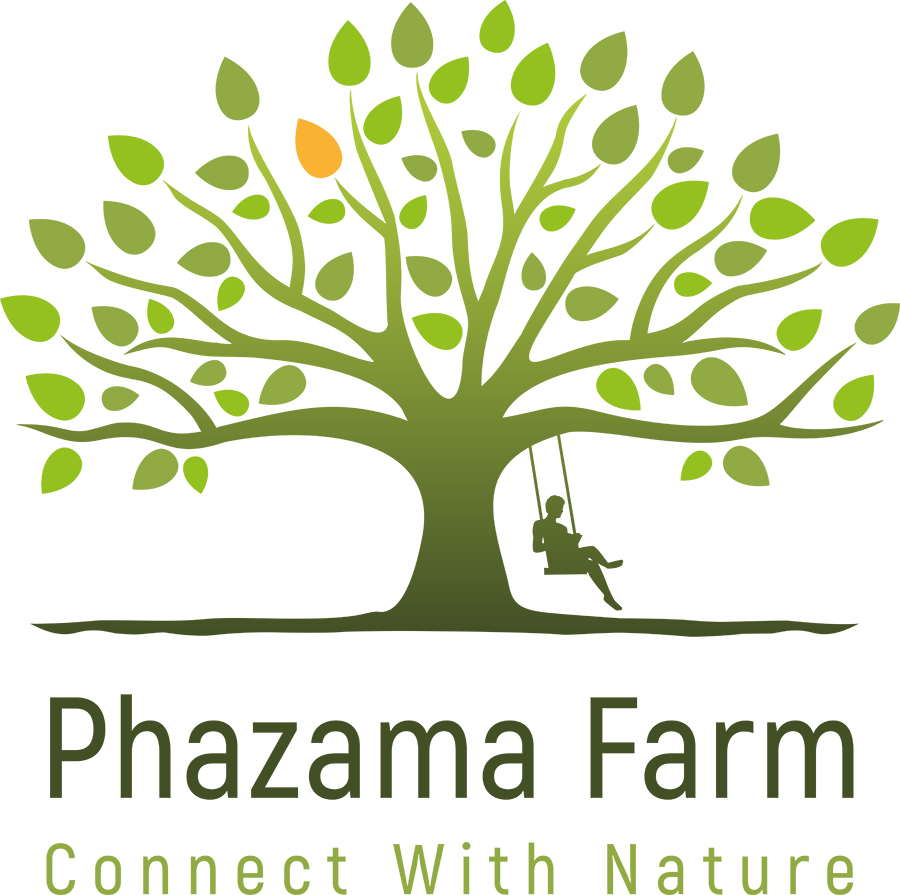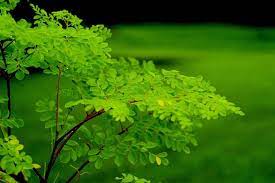
Phazama Farm has several farming goals. One of our goals is to become self-sufficient; we wish to live from our own land. We use natural farming techniques and all our produce will be organic.
Moringa
We had numerous motivations for growing Moringa trees.
Primarily, Moringa, hailed as the wonder tree, possesses remarkable qualities. Originally native to regions spanning India, Pakistan, Bangladesh, and Afghanistan, its adaptability has extended its growth to various parts of the world, including Africa. Its leaves, bark, flowers, fruit, seeds, and roots boast medicinal properties, serving as remedies for ailments such as asthma, diabetes, obesity, and menopausal symptoms. Additionally, Moringa stands as a vital food source, particularly in combatting malnutrition through its retention of essential vitamins and minerals when dried.
Our decision was further influenced by the accessibility of resources for growing Moringa, as we discovered through research and YouTube tutorials. However, our optimism was tempered by the realization that Botswana’s conditions posed challenges unsuitable for Moringa cultivation. Sandy soil, intense heat, and subpar borehole water quality presented formidable obstacles, compounded by the risk of freezing temperatures during winter.
Undeterred, we embarked on a journey of experimentation, strategically situating trees across our farm, testing various soil compositions, shade placements, and irrigation methods. Encouragingly, trees thriving in shaded areas exhibited promising growth, particularly flourishing during rainy periods. Moreover, our commitment to community development spurred us to expand our tree cultivation endeavors, aiming to generate employment opportunities within our local community.
After three years of persistent experimentation, we have cultivated around forty young trees and successfully produced 100 grams of high-quality Moringa powder—a modest achievement. Encouraged by this progress, we recently constructed another shaded area in preparation for planting new trees post-winter, reaffirming our belief in the potential. But our journey continues to be a learning experience and we remain steadfast in our pursuit of success.
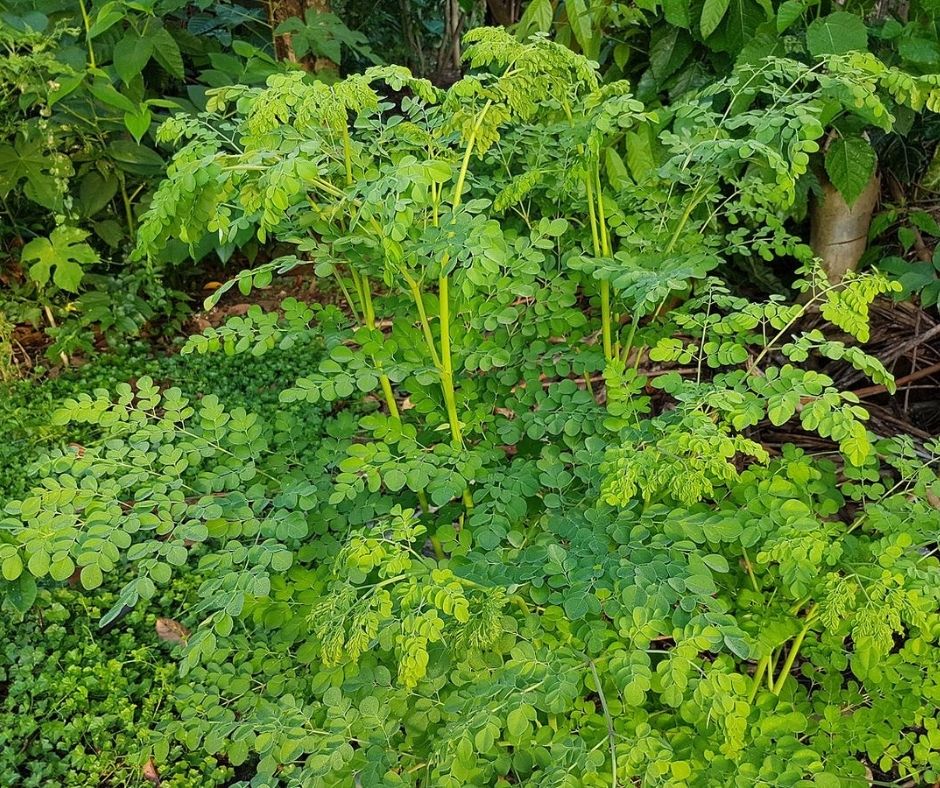
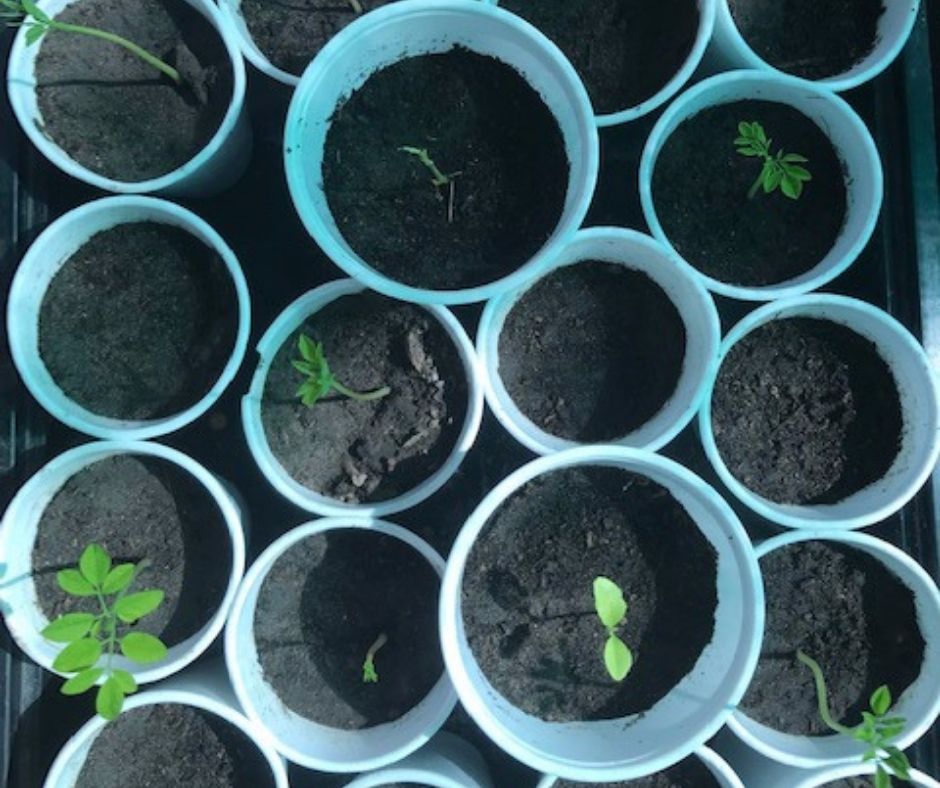
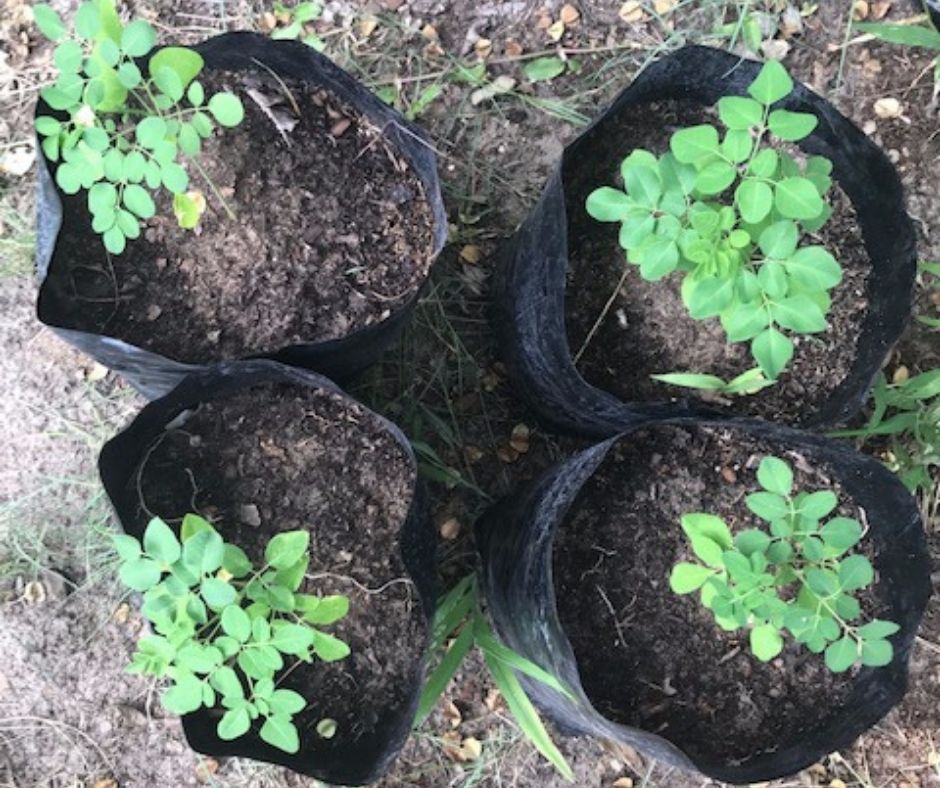
The story of our chickens…
It seemed a good idea to have some chickens around to have eggs for our staff and ourselves. We fenced a part of our farm and within that we built a kind of henhouse and we bought six chickens. It took a while before they started laying eggs, but then it went well for quite some time.
A python tried to get to them but got stuck and we had to save him or her. Sometimes the vervet monkeys or a mongoose got in and stole the eggs. But we still had our daily eggs. Until one day some honey baggers forced themselves into the henhouse and killed all the chickens…
For a while we did not have chickens, but we decided that we liked it very much and we built a new henhouse and bought new chickens. They seemed happy and started laying eggs. This time there were other predators from above like eagles and a wildcat who is living on the farm. And the chickens got killed again except for one we could save.
So now we have fenced and covered a big space and our one chicken ‘Flukkie’ is save and we recently got her 5 new girl friends.
Vegetables…
The best season to plant and harvest vegetables in Botswana is in winter. We (try to) grow different vegetables like tomato, rape, sweet potato, pumpkin, eggplant, beans, rocket, chilies and herbs.
As we also want to do this naturally we make our own compost, we plant in shady places and water a lot.
